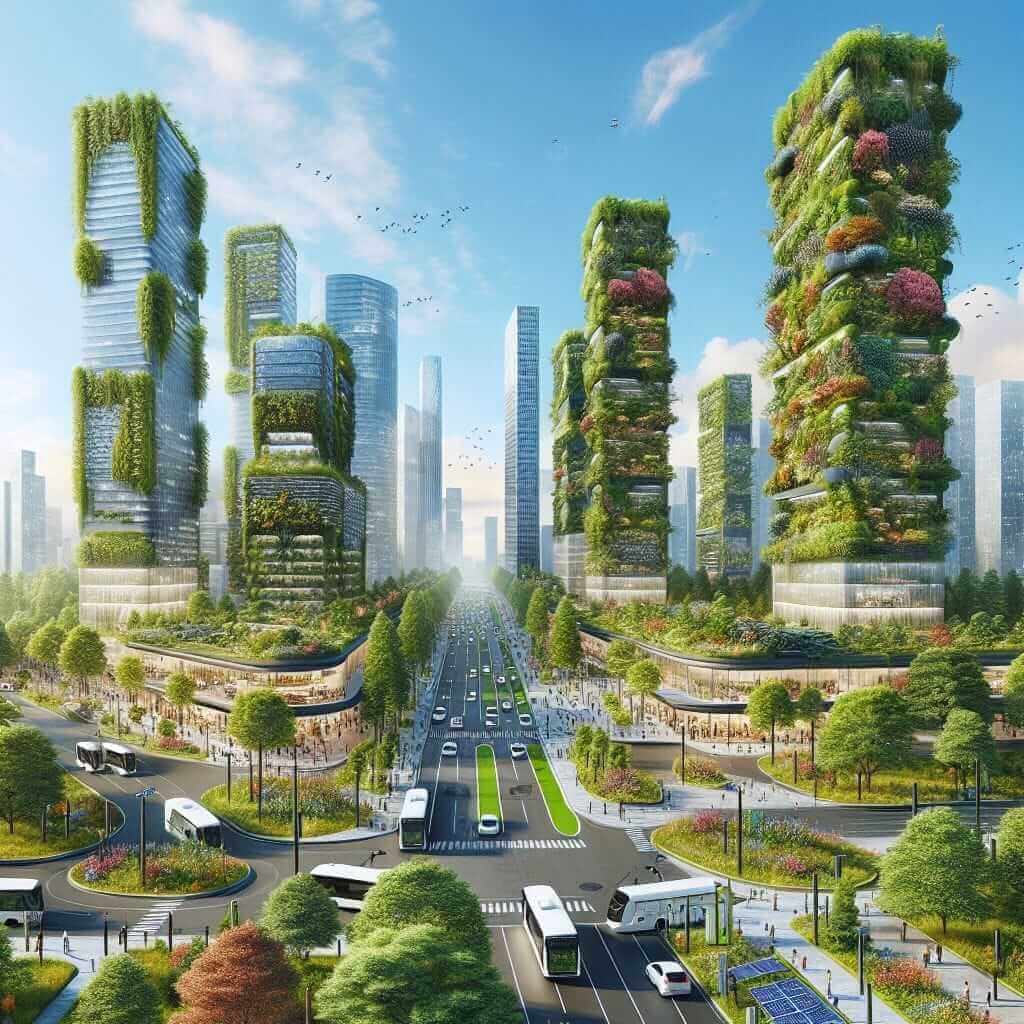The IELTS Reading section can be demanding due to its variety of topics and formats. One common topic that has appeared in past exams is “sustainable urban planning”. Urban planning is crucial for creating livable cities, but achieving sustainability in this area is fraught with challenges. This topic is not only relevant but also timely, given the increasing urbanization and environmental concerns worldwide.
In this practice article, we will explore the challenges of achieving sustainable urban planning. This article will provide a reading passage similar to those you might encounter on the IELTS exam, followed by a series of questions to test your comprehension. Finally, we will include answers and a detailed explanation to help you improve your reading skills.
Reading Passage
Sustainable Urban Planning: Challenges and Solutions
Sustainable urban planning aims to create cities that are environmentally friendly, economically viable, and socially inclusive. While the concept of sustainable urban planning is widely endorsed, its implementation faces multiple challenges.
Environmental Challenges: One of the significant challenges is dealing with environmental degradation. Cities worldwide are grappling with pollution, deforestation, and loss of biodiversity. Sustainable urban planning must address these issues by incorporating green spaces, reducing emissions, and promoting conservation.
Economic Constraints: Financial limitations pose a considerable hurdle. Developing sustainable infrastructure often requires substantial investment. Many cities, especially in developing countries, struggle to secure the necessary funding. Cost-effective solutions and public-private partnerships are essential to overcoming these economic barriers.
Social Inclusion: Ensuring social inclusivity is another critical aspect. Urban planning must consider the needs of all residents, including vulnerable and marginalized groups. However, achieving this inclusivity can be challenging due to societal prejudices and lack of community engagement. Planners must work to involve communities in decision-making processes and ensure equitable access to resources.
Regulatory and Political Issues: Effective urban planning requires a robust regulatory framework and political will. However, bureaucratic red tape and short-term political agendas often hinder long-term sustainable initiatives. Transparent policies and consistent political support are crucial for success.
Technological Integration: Lastly, integrating new technologies into urban planning can be daunting. While smart cities and AI can enhance sustainability, their deployment requires technical expertise, infrastructure, and public acceptance. Bridging the digital divide is essential for harnessing the benefits of technology in urban planning.
In conclusion, achieving sustainable urban planning involves navigating numerous challenges, from environmental and economic constraints to social and technological hurdles. Overcoming these obstacles requires a collaborative approach, involving governments, businesses, and communities, to create cities that are resilient, inclusive, and sustainable for future generations.
Example Questions
Multiple Choice
-
What is NOT mentioned as a significant challenge to sustainable urban planning?
A. Environmental degradation
B. Financial limitations
C. Regulatory and political issues
D. Technological simplicity -
According to the passage, what can help overcome economic barriers in sustainable urban planning?
A. Community protests
B. Public-private partnerships
C. Ignoring vulnerable groups
D. Reducing green spaces
Identifying Information (True/False/Not Given)
-
Many cities in developing countries lack the funding necessary for sustainable infrastructure.
- True
- False
- Not Given
-
Technological integration in urban planning requires only financial investment.
- True
- False
- Not Given
Summary Completion
5-6. One of the environmental challenges is dealing with (5) __ and loss of biodiversity. Integrating new (6) __ into urban planning also poses a challenge due to the need for technical expertise and infrastructure.
Answer Key & Explanations
- D. Technological simplicity – The passage mentions technological integration as a challenge but does not talk about technological simplicity.
- B. Public-private partnerships – The passage specifically mentions public-private partnerships as a way to overcome economic barriers.
- True – The passage states that many cities in developing countries struggle to secure the necessary funding.
- False – The passage mentions that technological integration requires technical expertise, infrastructure, and public acceptance, not just financial investment.
5-6. (5) pollution (6) technologies
Common Mistakes
- Misunderstanding the scope of a question (e.g., interpreting a question as asking for detailed information when it is asking for a general idea).
- Ignoring the exact wording of the text.
- Failing to recognize synonyms and paraphrasing in the questions and answers.
Vocabulary Enhancement
- Degradation (n) /ˌdɛɡrəˈdeɪʃən/: the condition or process of degrading or being degraded.
- Inclusivity (n) /ɪnˌkluːsɪˈvɪti/: the quality of including many different types of people and treating them all fairly and equally.
- Bureaucratic (adj) /ˌbjʊərəˈkrætɪk/: relating to the business of running an organization or government.
Grammar Focus
Relative Clauses
Relative clauses are used to provide extra information about a noun. They often begin with who, which, that, where, or when.
- Example: Achieving sustainable urban planning, which involves multiple stakeholders, is a complex task.
Tips for High Reading Scores
- Practice skimming and scanning techniques to find answers quickly.
- Enhance your vocabulary by reading a variety of texts on different topics.
- Take note of common question types and practice them regularly.
- Time yourself while practicing to improve your reading speed and accuracy.
To further your understanding of how technology and renewable energy play a role in urban planning, check out these articles:
- How is AI being used in urban planning?
- How is renewable energy being integrated into urban planning?

Happy studying and good luck on your IELTS journey!